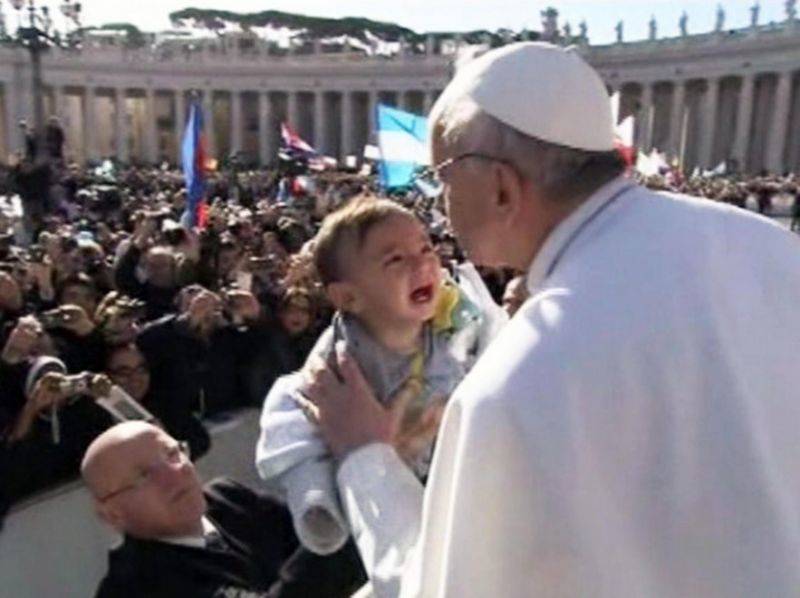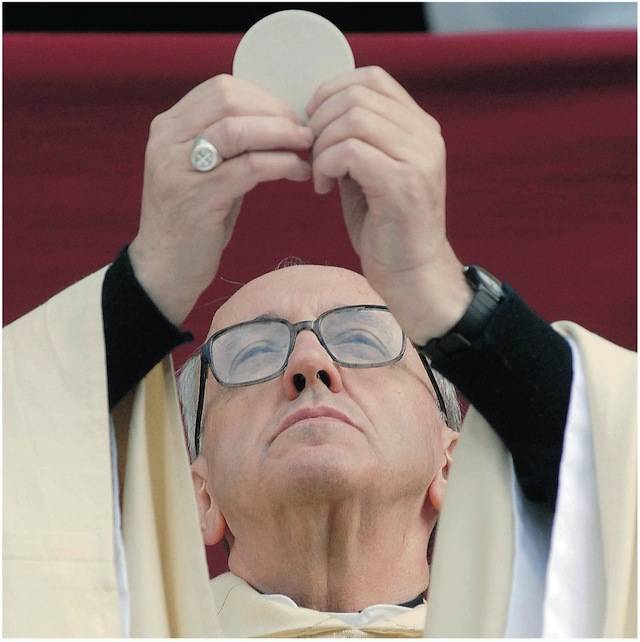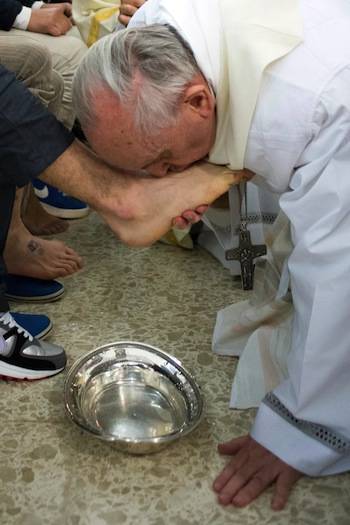Is Francesco an Italian American Pope?
With the election of the Italian Argentine Jorge (“Giorgio”) Mario Bergoglio as pope, who humbly chose the name Francesco, a number of groups were able to claim victory, if “victory,” in fact, is the proper term we wish to use.
I use this term only because during the years of the previous two non-Italian popes, there was always a murmur or two about them not being Italian. Before John Paul II (1978- 2005) and Benedict XVI (2005-2013), the last non-Italian elected was Adrian VI, a Netherlander, who served from January 1522 to September 1523. And let’s be honest, 455 years can make people believe that an Italian pope is only natural, and anything different, well, is not.
That notwithstanding, the groups I have in mind that might run a victory lap are: Latinos, Italians, and Italian Americans (in the greatest sense of the term). Latinos, of course, because Pope Francesco is Argentinian, therefore from Latin America, and, then again, we presume, a “Latino”; Italians, of course, because he is “Giorgio” Mario Bergoglio, son of Italian immigrants, and thus one of their progeny; Italian Americans (we usually associate this adjective with North Americans, here I am thinking more broadly), because he is, after all, someone from the Americas and, equally important, the son of Italian immigrants.
The coverage of this has been fascinating to say the least. There is no regular changing of the guard vis-à-vis the papacy; it is not like the president of any sovereign government with term limits on its leaders. Further still, we were dealing with the election of a new pope after a resignation of a sitting pope, something that hasn’t happened since 1415, when Pope Gregory XII resigned. So it was then that one of the first articles spoke of Pope Francesco as a “humble and outspoken man, and technically also Italian.”(1) It also had an embedded article about how Latinos were hopeful with a new pope from Latin America. (2)
So there
it was, Argentina, Italian parents, and Latin America, all to add up to a nicely combined “mestizo” of different heritages, Europe and the Americas, as Anthony M. Stevens-Arroyo nicely put it: “Like the title ‘Latin America,’ his name resonates with two heritages: Europe and the New World.”(3)
Yet this somewhat pollyannish, ethnic triad outlined above is not really the case. As Jesse Washington reported for NBC Latino(4), there is skepticism as to whether Pope Francesco is a true Latino.
For example: Must a Latino have indigenous blood? If so, then his Italian heritage cancels out any Latino status; for some, the definition of Latino must rely on “Spanish, African and Indian descent.” But Washington goes on to make some significant observations: “The conversation about Pope Francesco’ ethnicity is rooted in history and geography. Latin America is a complex region of deep racial and class narratives. The elites tend to be whites of European ancestry; the poor are often dark-skinned descendants of indigenous or African people. [...] So debates were bound to happen with the elevation of a fair- skinned son of Italians born in South America’s most European city, a place that has always identified more with Rome and Madrid than Caracas or Mexico City.”
And the geographical question continues, as Washington cites Yale history professor Stephen Pitti, director of the “Latino/a History Project” (I see the irony here.), who sees a difference between “Latino” and “Latino American,” this second term, Pitti recounts, coined by the French in 1860 around the invasion of Mexico. That said, then, according to Pitti and others, the former is used to “describe people of Latin American descent in the United States”; the latter used to describe people from the various countries that make up Latin America. Further still, as Raul Hinojosa-Ojeda, professor at UCLA’s Cesar E. Chavez Department of Chicana/o Studies, pointed out: were the test of indigenous blood applied, people such as Selma Hayek and Carlos Slim could not be considered Latinos(5).
So where are we then with Pope Francesco? Is he a Latino? Can we, geographically in the United States, decide to share our “American” adjective (as I have suggested above) and apply it also to Pope Francesco? If so, then he surely is an “American” of Italian descent. At the very least, he is an Italian Argentinian. And for some, that might be Italian American enough. Enrique Polick, 52, a Cuban-American who went to Rome for the conclave, said: “It’s a victory for the Americas, both North and South”(6). Then again, if we were to follow that more generic notion of thinking, which tells us to look at the person not at the label, we might align ourselves with those who feel “that the only label that really matters is the one we all share: human”(7). Whatever the verdict may be — I suspect it shall remain out for some time to come — for those of us of Italian descent, he is our paesano, that’s for sure!
2) http://nbclatino.com/2013/03/13/latino- religious-leaders-react-to-the-new-pope
3) http://articles.washingtonpost.com/2013- 03-17/national/37795526_1_jesuits-social- justice-pius-xii
4) http://nbclatino.com/2013/03/25/new- pope-revives-question-what-is-a-latino
5) quoted in Dennis Romero’s http://blogs. laweekly.com/informer/2013/03/jorge_mario_ bergoglio_new_pope_latino_spanish.php
6) www.nytimes.com/2013/03/14/world/ europe/pope-francis-bowing-to-crowds-wins- hearts.html





































i-Italy
Facebook
Google+
This work may not be reproduced, in whole or in part, without prior written permission.
Questo lavoro non può essere riprodotto, in tutto o in parte, senza permesso scritto.